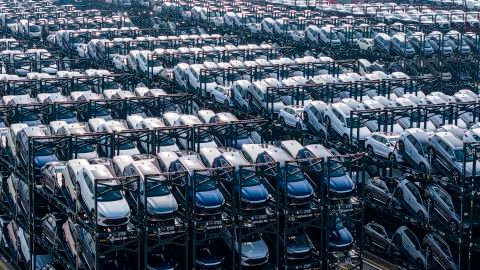Introduction: A Strategic Move Amidst Industrial Concerns
China is poised to make a significant investment of approximately 6 billion yuan ($845 million) to advance next-generation battery technology for electric vehicles (EVs). This ambitious initiative comes at a time when China’s industrial policies have sparked concerns over overcapacity and drawn scrutiny from both US and European authorities.
Government Support for Innovation: Driving Development in EV Sector
According to reports from the official China Daily newspaper, six prominent companies, including CATL, BYD, and Geely, are set to receive government support for the development of all-solid-state batteries (ASSBs). This marks a concerted effort by the Chinese government to foster innovation and drive progress in the EV sector, positioning the country as a leader in advanced battery technology.
Unprecedented Collaboration: Government-Led Project
The scale of this initiative is described as “unprecedented,” with relevant government ministries and commissions taking the lead in overseeing the project. While specific details are yet to be disclosed, the involvement of key stakeholders underscores the importance of this undertaking in China’s strategic agenda for technological advancement and industrial development.
Revolutionizing Battery Technology: The Promise of ASSBs
All-solid-state batteries (ASSBs) represent a significant leap forward in battery technology, offering improved safety, higher energy density, and enhanced performance compared to traditional lithium-ion batteries (LIBs). By utilizing a solid, conductive electrolyte instead of liquid or gel-form material, ASSBs are less prone to fire or explosion incidents, making them a safer and more reliable option for EVs.
Challenges Ahead: Cost and Mass Production Hurdles
Despite their potential benefits, ASSBs face significant challenges in terms of cost and mass production. The high cost of manufacturing and the complexity of scaling production have limited the widespread availability of ASSBs in the market. Addressing these challenges will be crucial in realizing the full potential of this technology and ensuring its viability for commercial applications.
Trade Tensions: Contextualizing China’s Strategic Move
The announcement of China’s substantial investment in advanced EV battery technology comes amid escalating trade tensions between China and the West. The Biden administration recently imposed new tariffs on Chinese EVs, advanced batteries, and other goods, citing concerns over overproduction and unfair trade practices. China’s proactive stance in advancing its EV ambitions reflects its determination to maintain its competitive edge in the global market.
Navigating International Trade Dynamics: Balancing Innovation and Protectionism
China’s investment in advanced EV battery technology underscores the complex dynamics of international trade and economic competition. While China seeks to bolster its position as a global leader in technology innovation, it must also navigate the challenges posed by protectionist measures and trade barriers imposed by other countries. Finding a balance between fostering innovation and addressing concerns over market distortions will be crucial in shaping the future of the global EV industry.
Looking Ahead: The Future of EV Technology
As China ramps up its investment in advanced EV battery technology, the global EV landscape is poised for further transformation. With ASSBs offering the promise of safer, more efficient, and more powerful batteries, the potential for widespread adoption of EVs continues to grow. As technological advancements accelerate and competition intensifies, collaboration and innovation will be key drivers in shaping the future of sustainable transportation.
































